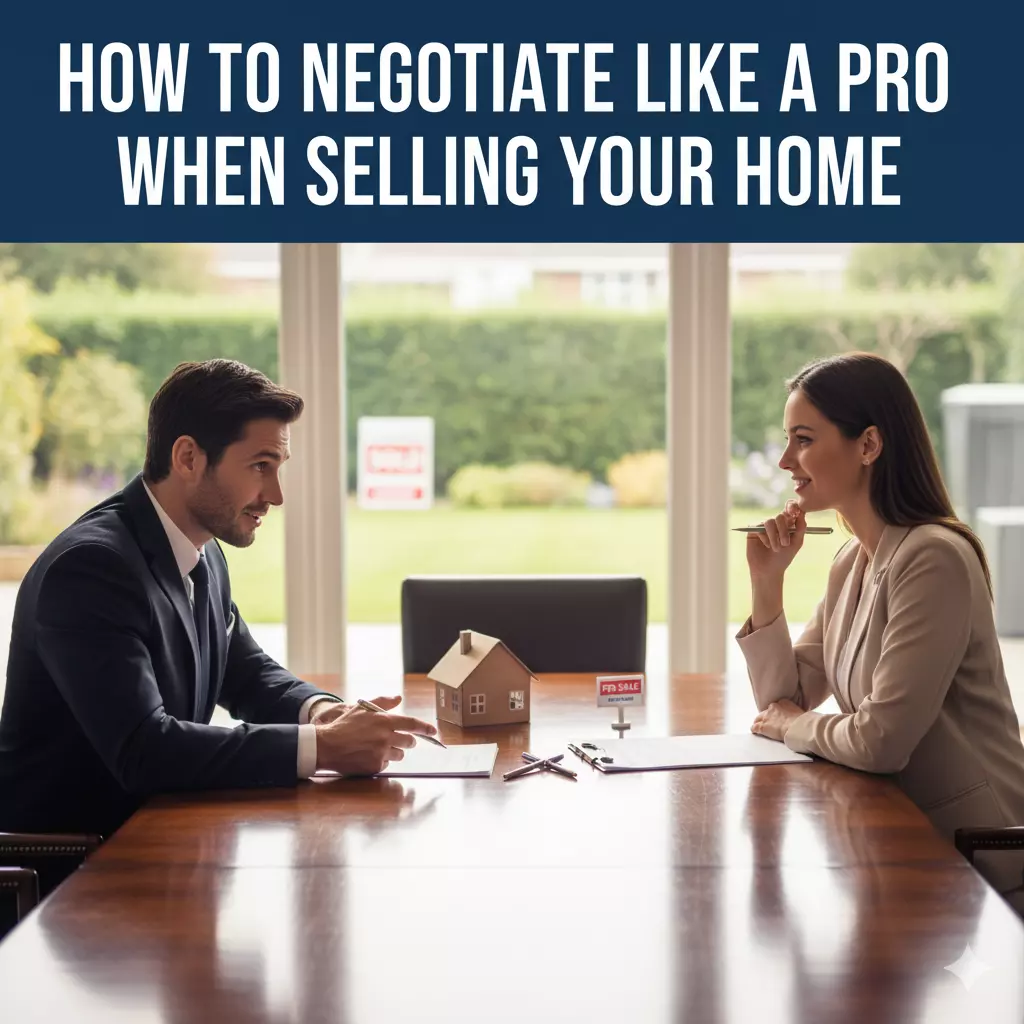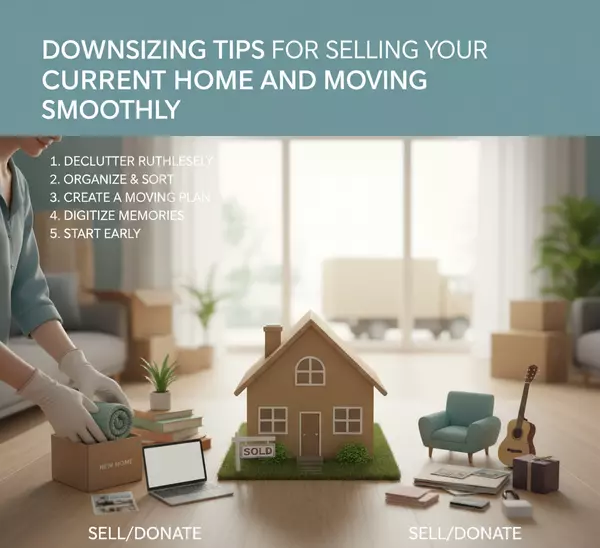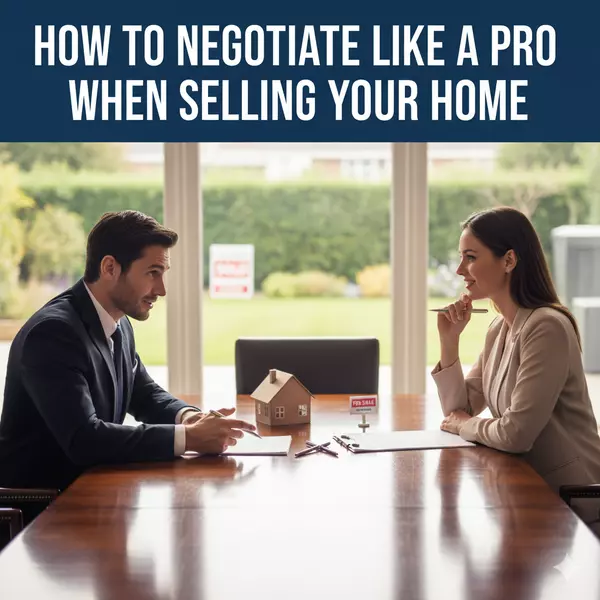How to Negotiate Like a Pro When Selling Your Home

How to Negotiate Like a Pro When Selling Your Home Selling your home isn't just about listing a price; it's about mastering a series of high-stakes negotiations. When an offer lands, the real work begins. You need a strategy to maximize your profit and minimize stress, all while keeping the deal alive. Forget emotional reactions. Negotiating like a pro is about using information, leverage, and disciplined communication. Here is your playbook for turning initial offers into excellent final contracts.
1.Establish Your Leverage Before You List You can’t negotiate from a position of weakness. The quality of your listing preparation dictates your power in the negotiation room.
- Pre-emptive Inspection: Have your own home inspection done before you list. This is the single biggest advantage you can give yourself. You eliminate the element of surprise, can address minor issues, and, most importantly, you control the narrative. When a buyer's inspection flags a new issue, you can immediately counter with, "We already repaired that, here is the receipt," or "That is a known, minor issue, and we've priced the home accordingly."
- Price Strategically: Your list price should be based on comparable sales, not sentiment. An aggressive, accurate price helps you attract multiple, serious offers right out of the gate, which is the ultimate leverage tool. This strategic pricing is especially critical in competitive markets like Prince George's, Montgomery, Charles, and Howard Counties in Maryland, where attracting early interest dictates negotiation power.
- Identify Your Non-Negotiables: Before the first offer, decide what matters most: Price? Closing date? Rent-back option? Knowing your absolute floor price and your critical terms prevents you from making rash decisions when under pressure.
- Deciphering the Offer: Beyond the Number Don't just look at the dollar amount. A lower price with clean terms is often better than a high price loaded with risk.
- The Contingency Scorecard: Evaluate the offer based on its contingencies, which are conditions that allow the buyer to walk away.
- Financing Contingency: Is the buyer pre-approved or just pre-qualified? Pre-approval is stronger.
- Inspection Contingency: How much time are they demanding? The shorter the window, the better for you.
- Appraisal Gap: Does the offer include an appraisal gap clause? This is a huge pro move where the buyer agrees to cover the difference if the appraisal comes in low, protecting your price.
- The Earnest Money Deposit (EMD): A large EMD shows the buyer is serious and has skin in the game. A small EMD suggests low commitment. Professionals prioritize the size and non-refundable nature of the EMD. In competitive markets like Montgomery and Howard Counties, a significant EMD signals a buyer's true commitment.
- Closing Timeline: Does their timeline (e.g., 30 days) align with your needs? If you need a longer closure or a rent-back option, a smooth timeline makes their offer valuable, even if the price is marginally lower.

- The Art of the Counteroffer: Discipline and Specificity The initial counter is your chance to establish dominance and discipline in the negotiation.
- Never Accept the First Offer: Even if the first offer is fantastic, always counter. This shows you are a serious seller and tests the buyer's absolute limit.
- Counter on Terms, Not Just Price: Instead of just dropping the price slightly, counter by removing or modifying a term. For example: "We accept your price of $400,000, provided you remove the sale-of-buyer's-home contingency." Or "We agree with your terms, provided you increase the EMD to $2% $ of the purchase price and close in 30 days, not 45."
- The Inspection Negotiation: This is where deals often fall apart. In Prince George's and Charles Counties, dealing with repair demands is critical. When a buyer demands repairs, a pro doesn't do the work; they offer a seller credit. Offering $5,000 closing credit instead of promising to fix a roof or HVAC is cleaner, faster, and prevents disputes over the quality of the repair work.
- Stay Cool and Let the Agent Be the Buffer Your real estate agent is your buffer, your information source, and your disciplined voice.
- Emotional Distance: Negotiations are inherently emotional, but emotion kills deals. Let your agent deliver the firm’s news. Their job is to keep you insulated from the back-and-forth tension so you can make rational, financially sound decisions.
- Set Time Limits: Always put a firm expiration time on your counters (e.g., "This counteroffer expires at 5:00 PM tomorrow"). This creates urgency and forces the buyer to make a quick decision rather than dragging out the process.
- The "Best and Final" Tactic: If you have multiple competitive offers, or if the negotiation has stalled, inform all parties that you are moving to a "Best and Final" round. This forces everyone to submit their absolute top price and cleanest terms, typically netting you the highest possible sale price.
Negotiating like a pro means being prepared, understanding that time and terms often outweigh raw price, and always maintaining control over the process. For sellers in the highly dynamic MD Counties, this disciplined approach is the key to maximizing your profit. Stick to your initial non-negotiables, and you will walk away with the best possible deal.
Recent Posts











"My job is to find and attract mastery-based agents to the office, protect the culture, and make sure everyone is happy! "


